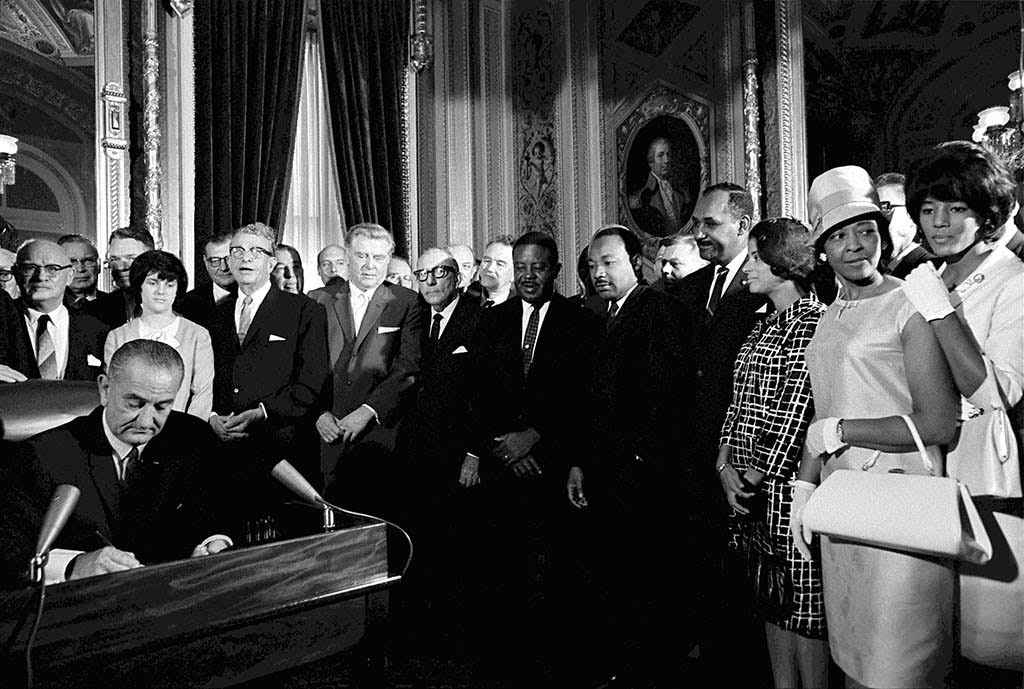Vote Vote Vote

In August 1965, President Lyndon Johnson signed a voting rights act into law. The law, The Voting Rights Act of 1965 “outlawed the discriminatory voting practices adopted in many southern states after the Civil War, including literacy tests as a prerequisite to voting.”
Today, more than 50 years later, some states are still making it more difficult to vote, particularly in predominately Black communities.
I live in Delaware and recently voted in a local election. The turnout for that election was an abysmal 10%.
Allowing 10% of the population to select those who will be making decisions that affect 100% of the population is appalling.
Unfortunately, that is the case in local elections around the country. Why is there such voter apathy, generally but particularly, at the local level when decisions made at that level have a direct impact on our lives and the greatest impact on our lives.
Most Americans rarely interact with the federal government. Yet the turnout for those elections, though lower than it should be, is much higher than the turnout when elections are held for governor, mayor, state legislators, sheriff, district attorney, school board members and other local officials. Those officials make decisions that affect us daily.
I am perplexed that so many eligible voters do not participate in the process, especially Black Americans. History has shown that those in power can and will enact policies and programs that are not in the best interest of the Black community. Then why don’t more Black Americans vote, and more consistently, at the local level.
“Not voting is not a protest. It is a surrender.”
Keith Ellison, Attorney General of Minnesota
“My vote does not count.” I have heard that so many times. If that is true, how do you reconcile that with restrictive voting laws being implemented today? Your vote does count and can effect change, which is why some state legislatures are making it exceedingly difficult for certain communities to participate in the electoral process. After Jon Ossoff and Raphael Warnock were elected to the United States senate, primarily on the strength of Black voters, the Georgia legislature, controlled by the opposing political party, began taking measures to disenfranchise Black voters. One of their targets is Souls-to-the-Polls, a get-out-the-vote initiative popular with Black churches.
When Americans cast their vote, they often do not vote down ballot. The bottom of the ticket is just as important, if not more, as the top of the ticket. Shortly after President Joe Biden announced his decision to run for re-election, the New York Times published an article highlighting Black voters’ frustration with the President for his failure to deliver on some of his campaign promises including federal protections against restrictive voting laws; student loan debt relief; and criminal justice and police accountability measures.
I understand their frustration and yes, the president does share responsibility for not following through on campaign promises.
I am frustrated as well. However, I am more frustrated because too many of us vote as if the presidency is an autocracy. “He/She alone can fix it” does not apply in a democracy.
Any bill the president wants passed must be voted on and approved by Congress. As voters and participants in the process, we need to keep that in mind.
When we vote for a person to serve as president, we must vote for a “supporting cast” as well, meaning those running to serve in the House of Representatives and the US Senate.
We must vote down-ballot and select representatives and senators who share the president’s vision so they can pass laws we want enacted. Senators must approve a president’s nominee for the United States Supreme Court and for cabinet positions including Secretary of Transportation, Secretary of Health and Human Services and Secretary of Housing and Urban Development. The decisions made by the people in those positions have a significant impact on our lives and well-being.
Eligible voters are more engaged when the presidency is on the ballot, but not so much during off-year and local elections. We need to change our mindset and become more engaged with local elections, and I include myself.
Those elected on the federal level are not responsible for banning Toni Morrison’s books Beloved and The Bluest Eye or paring down the Black history that’s barely part of the curriculum. State and local officials are responsible for that.
Those elected to serve in the federal government are not responsible for laws that allow the purchase of military style assault weapons without a comprehensive background check. State and local officials are responsible for that. And those officials were likely voted into office by a small subset of our community.
So, let’s change our mindset about elections and which ones are more important. Let’s get excited about voting in local elections and voting down-ballot in federal elections. It could change your life and the lives of our children.
[Note: This post is not in support of any person or party. The facts apply irrespective of the party or political affiliation of any person mentioned. The author of this article is registered as a nonaffiliated voter.]
This content is restricted to site members. If you are an existing user, please login. New users may register below.
